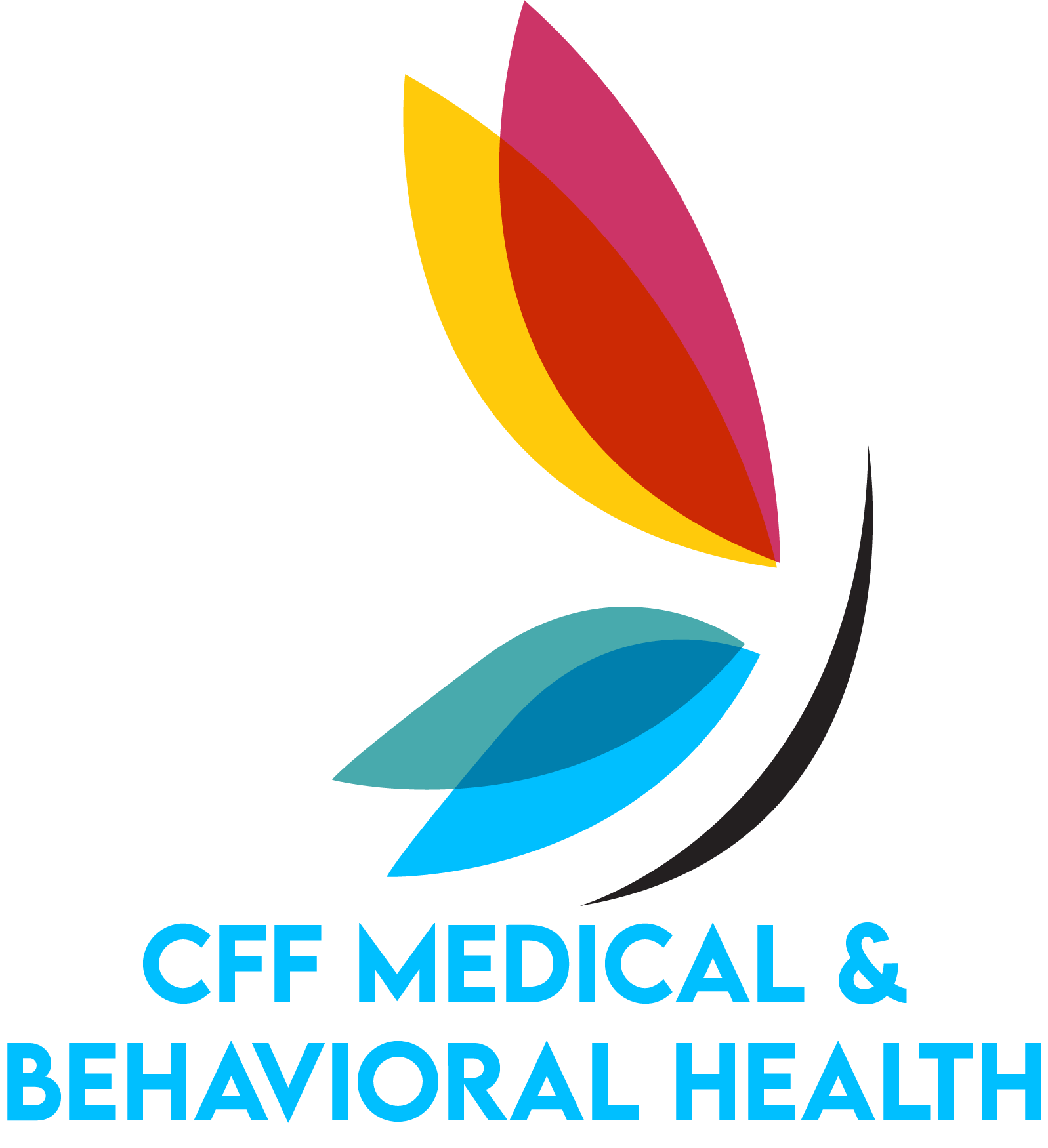Understanding ADHD in Adulthood
Overview of ADHD in Adults
Attention Deficit Hyperactivity Disorder (ADHD) is often associated with children, but it can persist into adulthood. Adults with ADHD may experience symptoms such as inattention, hyperactivity, and impulsivity. These symptoms can impact various aspects of life, including work, relationships, and daily functioning.
ADHD in adults is characterized by a persistent pattern of inattention and/or hyperactivity-impulsivity that interferes with functioning or development. The symptoms can vary in intensity and may present differently than in children. For instance, adults may struggle with time management, organization, and maintaining focus on tasks.
| Symptom | Description |
|---|---|
| Inattention | Difficulty sustaining attention, frequent distractions, and forgetfulness. |
| Hyperactivity | Restlessness, difficulty sitting still, and excessive talking. |
| Impulsivity | Hasty actions without considering consequences, interrupting others, and difficulty waiting. |
Challenges Faced by Adults with ADHD
Adults with ADHD encounter unique challenges that can affect their personal and professional lives. Understanding these challenges is crucial for managing ADHD effectively.
- Workplace Difficulties: Adults with ADHD may struggle with job performance due to difficulties in organizing tasks, meeting deadlines, and maintaining focus during meetings. This can lead to job instability and stress.
- Relationship Struggles: Maintaining healthy relationships can be challenging for adults with ADHD. Impulsivity and inattentiveness can lead to misunderstandings and conflicts with partners, family, and friends.
- Daily Life Management: Managing daily responsibilities such as paying bills, keeping appointments, and maintaining a household can be overwhelming. The inability to stay organized and follow through on tasks can lead to frustration and a sense of failure.
- Emotional Regulation: Adults with ADHD often experience emotional dysregulation, leading to mood swings, irritability, and low self-esteem. This can exacerbate other mental health issues such as anxiety and depression.
- Health and Well-being: The impulsivity associated with ADHD can lead to unhealthy lifestyle choices, such as poor diet, lack of exercise, and substance use. These behaviors can further impact overall health and well-being.
For those seeking help, it’s important to recognize the signs you may need professional mental health treatment. Finding the right support and treatment can significantly improve the quality of life for adults with ADHD.
By understanding the challenges faced by adults with ADHD, we can better support those affected and provide effective treatment options. For more information on choosing the right mental health provider, visit our article on how to choose the right mental health provider for your needs.
Proven Treatment Options
Managing ADHD in adults involves a combination of strategies tailored to individual needs. Here, we explore three proven treatment options: medication management, behavioral therapy, and lifestyle changes.
Medication Management
Medication is often a cornerstone in the treatment of ADHD in adults. It helps manage symptoms such as inattention, hyperactivity, and impulsivity. There are two main types of medications used:
- Stimulants: These are the most commonly prescribed medications for ADHD. They work by increasing the levels of certain neurotransmitters in the brain, which helps improve focus and attention.
- Non-Stimulants: These medications are an alternative for those who may not respond well to stimulants or experience adverse effects. They also help improve attention and reduce impulsivity.
| Medication Type | Common Uses | Potential Side Effects |
|---|---|---|
| Stimulants | Improve focus, reduce impulsivity | Insomnia, appetite loss |
| Non-Stimulants | Improve attention, reduce impulsivity | Fatigue, dry mouth |
For more information on how medication compares to therapy, visit our article on medication vs. therapy: which is best for mental health treatment?.
Behavioral Therapy
Behavioral therapy is another effective treatment option for managing ADHD in adults. This type of therapy focuses on changing negative behaviors and developing new skills to cope with the challenges of ADHD. Common techniques include:
- Cognitive Behavioral Therapy (CBT): This helps individuals identify and change negative thought patterns and behaviors. It is particularly effective in addressing issues such as procrastination and time management. Learn more about CBT in our article on how cognitive behavioral therapy (cbt) helps with anxiety & depression.
- Skills Training: This involves teaching practical skills such as organization, planning, and problem-solving to help manage daily tasks more effectively.
Lifestyle Changes
In addition to medication and therapy, lifestyle changes play a crucial role in managing ADHD symptoms. These changes can help improve overall well-being and enhance the effectiveness of other treatments. Key lifestyle modifications include:
- Exercise: Regular physical activity helps reduce symptoms of ADHD by increasing the levels of neurotransmitters in the brain. It also helps improve mood and reduce stress.
- Nutrition: A balanced diet rich in fruits, vegetables, whole grains, and lean proteins supports brain health and overall well-being. Avoiding excessive sugar and caffeine can also help manage symptoms.
- Sleep: Ensuring adequate and consistent sleep is essential for managing ADHD. Poor sleep can exacerbate symptoms such as inattention and irritability.
For more holistic approaches to managing ADHD, explore our article on holistic approaches to mental health: alternative therapies that work.
By combining medication, therapy, and lifestyle changes, individuals with ADHD can effectively manage their symptoms and improve their quality of life. For those seeking professional help, it’s important to find the right healthcare provider. Visit our guide on how to choose the right mental health provider for your needs for more information.
Support Systems for Adults with ADHD
Navigating ADHD in adulthood can be challenging, but having the right support systems in place can make a significant difference. Here, we explore various support systems that can help adults manage their ADHD effectively.
Counseling and Support Groups
Counseling and support groups play a crucial role in managing ADHD in adults. Professional counseling provides a safe space for individuals to discuss their challenges and develop coping strategies. Support groups offer a community of individuals who share similar experiences, providing mutual support and understanding.
| Type of Support | Benefits |
|---|---|
| Individual Counseling | Personalized strategies, emotional support |
| Group Therapy | Shared experiences, peer support |
| Online Support Groups | Accessibility, anonymity |
For more information on the role of therapy in treating mental health conditions, visit our article on the role of therapy in treating anxiety depression and ptsd.
Workplace Accommodations
Workplace accommodations are essential for adults with ADHD to perform effectively in their jobs. Employers can implement various strategies to support employees with ADHD, such as flexible work hours, quiet workspaces, and clear communication of tasks.
| Accommodation | Description |
|---|---|
| Flexible Work Hours | Allows for peak productivity times |
| Quiet Workspaces | Reduces distractions |
| Task Management Tools | Helps with organization and deadlines |
Understanding your rights and advocating for necessary accommodations can significantly improve job performance and satisfaction. For more guidance on choosing the right mental health provider, visit our article on how to choose the right mental health provider for your needs.
Family and Social Support
Family and social support are vital for adults managing ADHD. Educating family members and friends about ADHD can foster a supportive environment. Open communication and understanding can help reduce misunderstandings and strengthen relationships.
| Type of Support | Benefits |
|---|---|
| Family Education | Increases understanding and empathy |
| Open Communication | Reduces conflicts, improves relationships |
| Social Activities | Provides relaxation and stress relief |
Building a strong support network can enhance the overall well-being of individuals with ADHD. For more insights into holistic approaches to mental health, explore our article on holistic approaches to mental health: alternative therapies that work.
By leveraging these support systems, adults with ADHD can better manage their symptoms and lead fulfilling lives.
Integrative Approaches to ADHD Treatment
Managing ADHD in adults involves a comprehensive approach that includes various integrative treatments. These methods complement traditional treatments and can significantly improve the quality of life for those with ADHD.
Mindfulness and Meditation
Mindfulness and meditation are effective techniques for managing ADHD symptoms. These practices help individuals focus on the present moment, reducing impulsivity and improving attention. Regular mindfulness practice can lead to better emotional regulation and stress management.
| Benefit | Description |
|---|---|
| Improved Focus | Helps in maintaining attention on tasks |
| Emotional Regulation | Reduces impulsivity and emotional reactivity |
| Stress Reduction | Lowers overall stress levels |
For more information on how mindfulness can aid in mental health, visit our article on holistic approaches to mental health: alternative therapies that work.
Exercise and Nutrition
Exercise and nutrition play a crucial role in managing ADHD symptoms. Regular physical activity increases the levels of neurotransmitters like dopamine and serotonin, which are often lower in individuals with ADHD. A balanced diet, rich in essential nutrients, supports brain health and overall well-being.
| Activity | Benefit |
|---|---|
| Aerobic Exercise | Enhances mood and cognitive function |
| Strength Training | Improves focus and reduces hyperactivity |
| Balanced Diet | Supports brain function and energy levels |
For more insights on the role of lifestyle changes in mental health, explore our article on the role of therapy in treating anxiety depression and ptsd.
Alternative Therapies
Alternative therapies, such as acupuncture, yoga, and biofeedback, offer additional support for managing ADHD. These therapies can help reduce stress, improve focus, and enhance overall mental health.
| Therapy | Benefit |
|---|---|
| Acupuncture | Reduces stress and improves energy flow |
| Yoga | Enhances focus and relaxation |
| Biofeedback | Teaches self-regulation of brain activity |
For a deeper understanding of alternative therapies, read our article on holistic approaches to mental health: alternative therapies that work.
Integrative approaches to ADHD treatment provide a holistic way to manage symptoms and improve daily functioning. By incorporating mindfulness, exercise, nutrition, and alternative therapies, individuals with ADHD can achieve better control over their condition and enhance their quality of life.
Seeking Professional Help
Navigating ADHD in adulthood can be challenging, but seeking professional help is a crucial step in managing the condition effectively. Here, we discuss how to find the right healthcare provider, the importance of regular monitoring and follow-up, and advocating for your needs.
Finding the Right Healthcare Provider
Finding the right healthcare provider is essential for effective ADHD management. It’s important to choose a provider who understands the complexities of ADHD in adults and can offer a comprehensive treatment plan. When searching for a provider, consider the following:
- Experience and Specialization: Look for providers who specialize in ADHD and have experience treating adults.
- Approach to Treatment: Ensure the provider offers a combination of medication management, behavioral therapy, and lifestyle changes.
- Accessibility: Consider the provider’s location, availability, and whether they offer telehealth services.
For more tips on choosing the right provider, visit our article on how to choose the right mental health provider for your needs.
Importance of Regular Monitoring and Follow-Up
Regular monitoring and follow-up are critical components of managing ADHD in adults. Consistent check-ins with your healthcare provider help to:
- Track Progress: Assess the effectiveness of the treatment plan and make necessary adjustments.
- Manage Side Effects: Monitor any side effects from medications and address them promptly.
- Provide Support: Offer ongoing support and resources to help you manage ADHD symptoms.
Regular follow-up appointments ensure that your treatment plan remains effective and tailored to your needs. For more information on the role of therapy in mental health treatment, read our article on the role of therapy in treating anxiety depression and ptsd.
Advocating for Your Needs
Advocating for your needs is an important aspect of managing ADHD. Being proactive about your treatment can lead to better outcomes. Here are some tips for advocating for yourself:
- Educate Yourself: Learn about ADHD and its treatment options to make informed decisions.
- Communicate Openly: Share your concerns and preferences with your healthcare provider.
- Seek Support: Join support groups or counseling sessions to connect with others who understand your experiences.
Advocating for your needs ensures that you receive the best possible care and support. For more insights on managing mental health conditions, explore our articles on bipolar disorder treatment: managing mood swings and stability and understanding borderline personality disorder: symptoms & treatment.
By finding the right healthcare provider, committing to regular monitoring, and advocating for your needs, you can effectively manage ADHD in adulthood and improve your quality of life.








